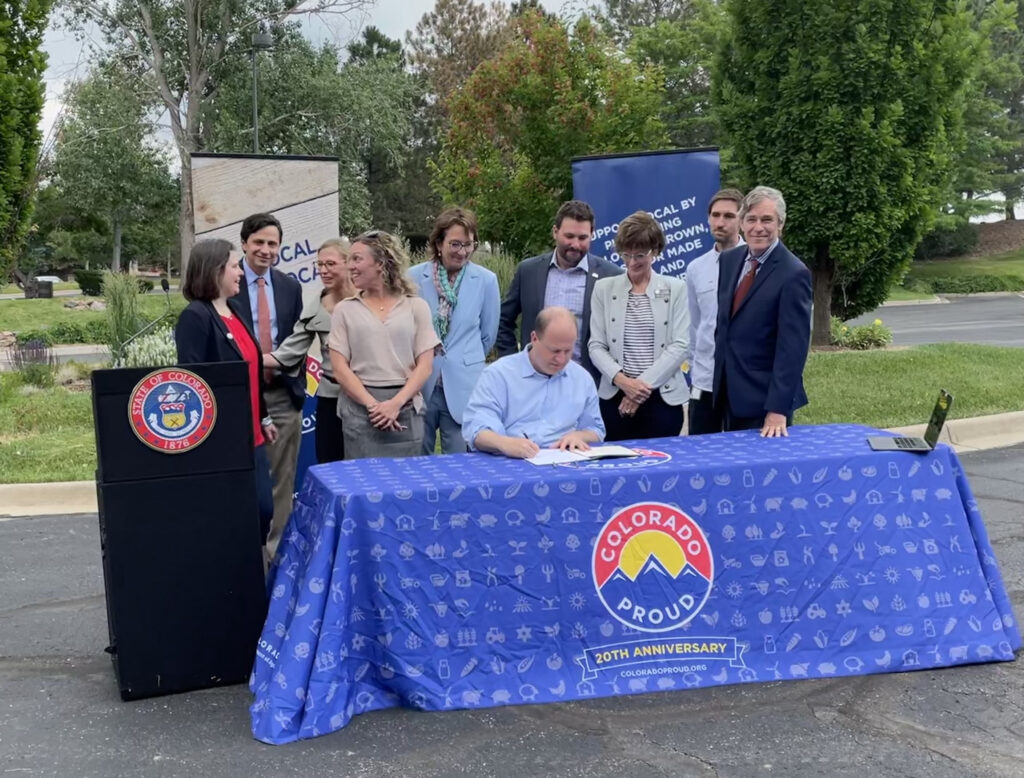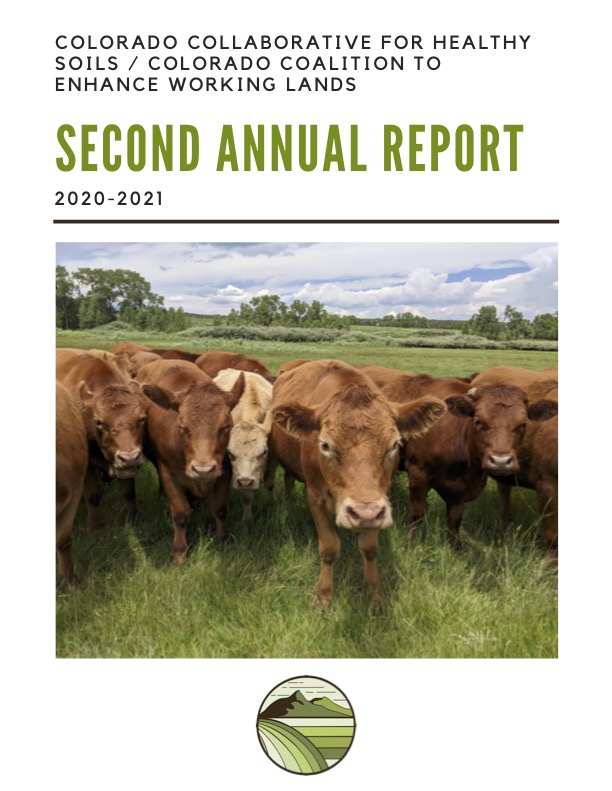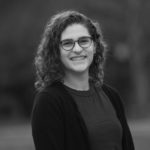
Governor Jared Polis signing HB 21-1181, ‘the Colorado Soil Health Bill,’ into law.
Photo Credit: Darya Watnick
Two days after I landed in Denver to spend a month working and exploring Colorado, Governor Jared Polis signed HB 21-1181, “Concerning the creation of a voluntary soil health program”. It was rewarding and moving to be a part of this culminating ceremony as I have supported this bill and the people working on it since my fellowship last summer. It was an exciting way to kick off my time in Colorado!
Part of the work that I’m doing this summer is related to the passing and signing of this bill. Now that the Colorado Department of Agriculture is authorized to implement a soil health program for the state, we have to figure out how it is going to run. As an intern for the consulting firm that drafted the legislation and wrote the grants that will be funding the program over the next 4 years, I am supporting a lot of the behind the scenes logistics of rolling out this statewide program, starting with 16 Conservation Districts and 4 other eligible entities.
This summer I am working on a few different projects. One of the bigger projects I’ve been working on is around the implementation of the soil health program, now that the bill has been passed. I helped write and edit a Federal Conservation Innovation Grant application that will provide funding for a few years of the program. I assisted in the creation of a document of grant guidelines for the Conservation Districts and producers who will be applying to participate in the soil health program as it gets put into effect. With so many stakeholders, agencies, and grants involved in the program, the organization is extremely complicated. I’m in charge of a Trello board that is keeping track of all of the steps and who is responsible as the implementation is finalized.
The other major part of my summer work has been managing the Colorado Coalition to Enhance Working Lands (CO-CEWL). CO-CEWL is a community group with the mission of improving the resilience and productivity of Colorado working lands through policy and legislative action. After this summer, I will be taking over the majority of the administration of CO-CEWL. I will be responsible for setting up meetings for the working groups (Soil Health and Land Access, Transition, & Tenure), sending out agendas, taking notes, updating contact lists, and posting on social media. Over the past two months, I have helped the Land Access, Transition, & Tenure Working Group refine their project choices down to Long-Term Leases, Transfer of Development Rights/Option to Purchase at Agricultural Value, and Beginning Farmer Tax Credits.
My supervisor and I have also been working on a strategic plan for CO-CEWL, with the input of CO-CEWL’s Steering Committee. We are laying the mission, vision, and goals of the group for the next year and a half. We also wrote out strategies and objectives for achieving these goals for the working groups, so they have something concrete to work towards. CO-CEWL is merging with the Colorado Collaborative for Healthy Soils (CCHS), the group responsible for the creation and passage of the soil health bill.
Lastly, I created an Annual Report for the newly merged CCHS and CO-CEWL. Last year, CCHS put out an Annual Report to celebrate the success of its first year. We thought we would create a 2nd Annual Report to celebrate the wins of the last year, with the passage of the bill and the implementation of the soil health program and to showcase the power of merging these two groups.

The cover of the Colorado Collaborative for Healthy Soils / Colorado Coalition to Enhance Working Lands Second Annual Report.
Darya Watnick, Western Resources Fellow| Darya Watnick is a Master of Environmental Management candidate at the Yale School of the Environment, focusing on agriculture & food systems. She is particularly interested in regenerative agriculture practices and soil health. Her passion for food and agriculture began during her childhood in Southern California, growing up near avocado and citrus orchards and many strawberry fields. She holds a BA in Environmental Studies from Lewis & Clark College in Portland, OR. See what Darya has been up to. | Blog

